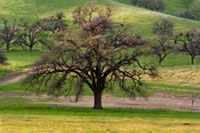Blog
Generate Images With A Free ChatGPT Account
Did you know that OpenAI allows users to generate images with a free account? At the time of writing this blog post, ChatGPT allows the use of DALL·E to generate two images per day with a free account. All you have to do is ask, by typing in the prompt. CAVEAT: Always research the ownership of any images generated in an AI tool before you consider publishing them. PROMPT: Create an image of an airplane flying over art deco buildings ChatGPT spent a little time and created an image. At the bottom of the image, ChatGPT...
read moreHow A WWII Morning Report Can Solve A Mystery
WWII Military Research can have challenges for many reasons. Of course, the fire at the National Personnel Records Center (NPRC) may have burned an army ancestor’s file. Unlike WWI records. Not many of the WWII records are online. This means a little more work is required in identifying which records will help and then traveling to the repositories. We had known that my father was stationed in Greenland as a soldier during WWII, and that he traveled to Greenland by ship. He spoke very little about WWII, but that was some of the very...
read moreResearching Civilian Employees of the Federal Government
Researching Civilian Employees of the Federal Government This blog post is intended to get you started on researching civilians who worked for the Federal Government. Civilian employment also includes records for those who worked for the Civilian Conservation Corps (CCC) or Works Project Administration (WPA) employment. NARA has an older publication that has information about their resources researching federal employees: https://www.archives.gov/files/publications/ref-info-papers/rip110.pdf (To find other NARA informational...
read moreFinding Helpful NARA Publications
Genealogists know to look for all available sources of information when doing their reasonably exhaustive search. We also know to list the resources when creating reports and proof documents. But how do we know what we don’t know? The best way is to keep learning. Keep reading, seek out publications about topics of interest, attend webinars and learn from other genealogists. A great place to look for source material is the National Archives and Records Administration (NARA). Without knowing what sources are available,...
read morePioneer Infantrymen at the National Museum of the US Army
Recently I attended The Army Historical Foundation’s Genealogy Seminar at the National Museum of the United States Army. The Museum is located at Fort Belvoir, Virginia. You can read about that seminar in Army Historical Foundation’s Genealogy Seminar. After the presentations, I had a little time to go through the Museum exhibits. As you might expect from my books and blogs posts, I headed to the first floor to look for the exhibits about WWI and WWII. With the Museum closing soon, I glanced around the Nation Overseas Gallery,...
read moreArmy Historical Foundation’s Genealogy Seminar
On 11 May 2024 I attended The Army Historical Foundation’s Genealogy Seminar, hosted at the National Museum of the United States Army. The seminar was entitled “Unlock your military legacy.” There were attendees both in person and online, and I was able to attend in person. The speaker lineup was impressive: Richard G. Sayre, COL (USA-Ret.), Pamela Boyer Sayre, and Rebecca Whitman Koford, CG, CGL. Many of you know Rick and Pam from their outstanding presentations. Among her many accomplishments and extensive service...
read moreBook Review: Evidence Explained, Fourth Edition
It is difficult to tackle a review of such a definitive classic tome, but this newest edition does warrant the work involved in such an undertaking. Elizabeth Shown Mills has certainly invested the time to document what can be a daunting process to many, and to eliminate confusion about the topic with clear explanations. New technology means more and different sources to cite, and the book has been expanded to conquer them all. It is difficult to imagine how this magic has been done, given that the page count of the book has been...
read moreThe Postmaster Finder
The Postmaster Finder is a useful database if you are researching U.S. Postmasters or Post Offices. You can look up a Postmaster by city or search the database by Postmaster name. This database has entries from 1971 or in some cases, earlier. Another interesting part of this website is links to other useful resources for researching the postal service at the National Archives. The Postmaster Finder database can be found at: https://about.usps.com/who/profile/history/postmaster-finder/ To find the Postmaster in a city,...
read moreFinding Single Irish Women Immigrants to New York City
In our extended family, a group of cousins work together to bring the stories of our shared Irish immigrant family, as well as the families they left behind in Ireland, back to life. In the chain migration of a family unit, the older siblings often come first, with others following. In the family unit from which most of us descend, the oldest siblings traveled to the US first, followed by the widowed mother and all the younger siblings, traveling after the death of their father. A shared goal is to bring the stories of our shared Irish...
read moreWebinar Review: Irish Immigrant Women in the US
As you know, this blog reviews. It is probably time to review webinars! Or at least one webinar that I found incredibly interesting which shared very insightful resources. The webinar was “A Lonely Voyage: Finding Irish Immigrant Women in the United States” given by Elizabeth Hodges, an expert in Irish and Irish American Studies. Elizabeth Hodges is a Senior Genealogy Library at the Allen County Public Library, in Fort Wayne, Indiana, which is the home of The Genealogy Center. You can read about her and the other librarians...
read more


